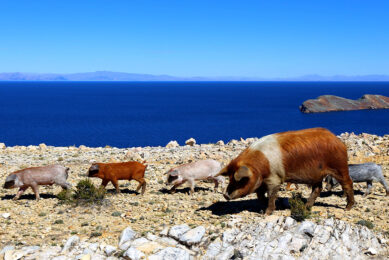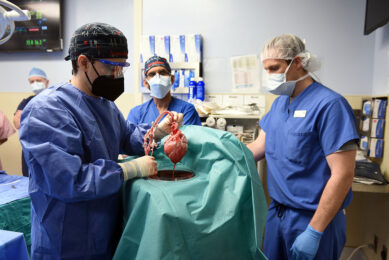Swine manure researchers find cost advantages
Agricultural Research Service (ARS) scientists and cooperators have developed a system that exceeds North Carolina state benchmarks for controlling pollutants from swine farms.
Soil scientists Matias Vanotti and Ariel Szogi worked with Super Soil Systems USA of Clinton, N.C., to develop a second-generation system that met North Carolina’s environmental standards for manure management. As would be expected for new technologies, significant cost reductions were achieved by innovations and on-farm testing.
The revamped system was two-thirds less expensive to build and operate than the first-generation system, which was tested in 2003.
The new on-farm treatment system used solid-liquid separation and nitrogen and phosphorus removal processes. It removed high levels of several pollutants from manure wastewater, including almost all of the pathogens, odour-causing constituents and ammonia. Replacing anaerobic-lagoon-based systems with the new technology also reduced greenhouse gas emissions by 97%.
Animal health and production also benefited. Swine daily weight gain increased, feed conversion improved, animal mortality decreased and 5.6% more hogs were sold per growing cycle.
Separated manure solids were converted in a centralised facility into composted materials and used for organic plant fertiliser, soil amendments and plant growth media. Producers can also profit from the new system by selling greenhouse gas emission reduction credits and water quality credits.
The new technology could help swine-producing states protect existing jobs and keep the door open for future job expansion.
US Patent Application Serial No. 11/820,396 was filed for this system on June 19, 2007.
Related website
• USDA ARS
©











